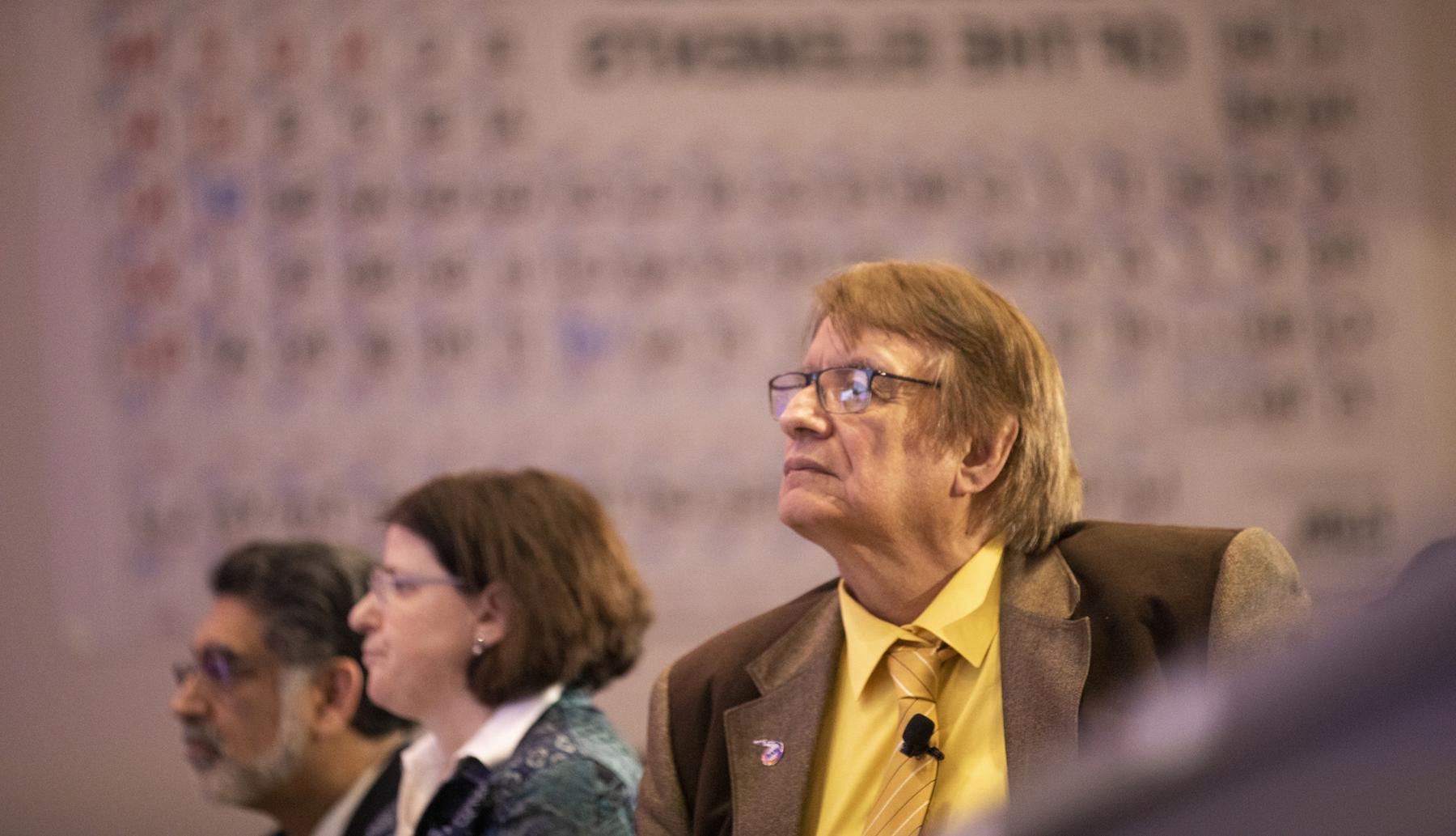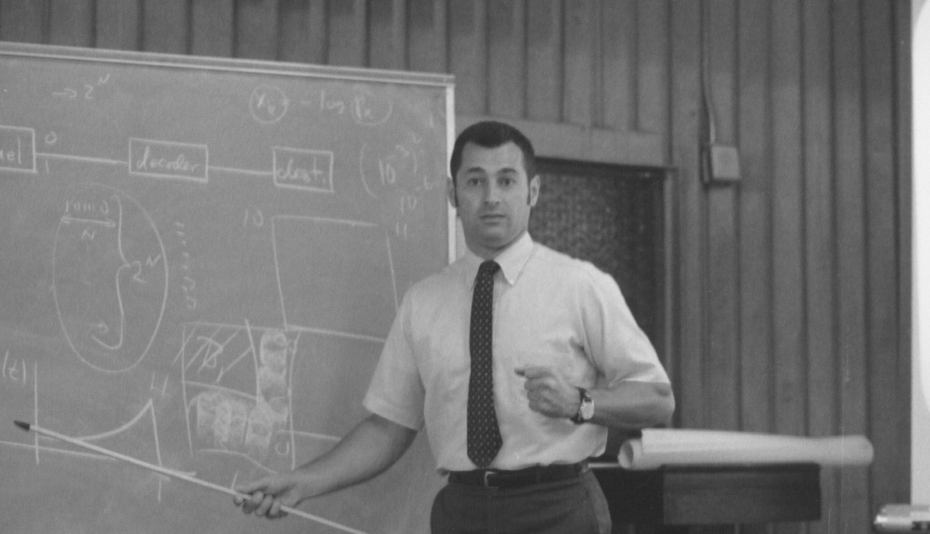Richard Tapia is a world-renowned researcher best known for his work in computational and mathematical sciences.
He has a storied career teaching mathematics for over 50 years. In 2010, he earned the National Medal of Science, which he considers among his happiest memories. Aside from his work in mathematics, Tapia is also a leader in efforts to bolster diversity on college campuses and throughout academia. But despite all his success and accolades, Tapia jokes, ”a lot of things were accidental.”
“I had no grand plans. It was just a little bit at a time, accidentally,” Tapia told University of Texas at Arlington students at an event hosted by the National Science and Technology Medals Foundation.
Although Tapia made his way to the top of his field, he did not have a defined path in mind for his career. He didn’t even plan to attend college after graduating high school.
“The reason I even ended up in math was that I was good in math,” Tapia said. “I was the best student in mathematics at a really crummy school. It was a bad school — but I was the best. Being the best in a small pond can still give you a lot of confidence.”
“I knew I was smart but not a genius. I’m just kind of smart,” he added. “But I didn’t have a high school teacher directing me. They didn’t say ‘hey you’re smart … you should go on to college.’ I didn’t have anybody telling me that.”
Throughout high school, Tapia’s only guidance was from his mother who told him to “‘go forward!’ but she didn’t tell me how.” His mother came to the United States at the age of 11 from Mexico and began working to provide for her younger sister and eventually her own children.
“My mother — who was indeed a remarkable woman — never went to middle school, never went to high school,” Tapia said. “She believed in the rainbow path and the pot of gold. If you just went one step at a time, one step at a time, one step at a time, you’d get to a good place — without knowing the destination.”
Although she encouraged him, his mother could do little to help guide him in school. When he graduated, he began repairing cars to make a living.
While working in the garage, Dr. Tapia met a man named Jim who was the only other person besides his mother to encourage him to foster his talents in school. “Jim [said] ‘Richard, don’t make my mistake; go to school.’ So finally after that summer, after I graduated, I went to community college.”

At community college, Tapia was again the best student in the class.
“Two math professors came to me and said, ‘you’re really good.’ [I said,] ‘I am?’ [They said,] ‘go to UCLA,’” he said. He then applied and enrolled.
“When I got to UCLA, they said, ‘how come you didn’t come out of high school? You could have gotten in, and you would have qualified for scholarships.’ Because nobody told me, nobody told me!” Tapia said.
At UCLA, Tapia was no longer the best. Tapia said he was “underprepared” for the more rigorous coursework and took fewer classes than his peers to catch up. His mother’s guidance in “survival skills” — and encouragement to keep moving forward helped Tapia push through.
Eventually, Tapia found himself ahead of his peers, who encouraged him to pursue graduate school. He earned a Ph.D.
His professors then encouraged him to teach and made inquiries on his behalf. The University of Wisconsin — renowned for its mathematics program — hired Tapia.
At Wisconsin, Tapia began working with his idols in the world of mathematics.
“The critical thing was, I was no longer a student. I was accepted by the best in the world as a colleague, as somebody to work with,” Tapia said.
When one of Tapia’s heroes, Michael Golomb, visited the university, they discussed a paper Golomb had written. Tapia proposed a way to extend it.
“He said, ‘let’s do it.’ So we wrote a paper together. I was writing with the best people in the world, and that gave me good visibility,” Tapia said. “It was really important that they accepted me as one of them.”
“If you sit on the porch like a big dog, and you bark like a big dog — the world will see you as a big dog,” he added. “I saw all these big dogs. My heroes, people I had read about. World-class mathematicians. I said, ‘I’m with the big dogs, so I’d better bark.’”
But not everything was positive. Tapia noted that his list of successes is coupled with failures and challenges that are just as crucial to his story.
When Tapia and his family moved to Wisconsin, they rented a house from a local owner. “The person who rented the house called UCLA to find out if we were Mexican. [When] they found out that I was Mexican, [they] took away the house. We got there with no house. Two kids, no house.”
Tapia said the university was embarrassed by the incident and quickly helped his family find another home.
“If everything goes the way you want, so be it. That’s beautiful,” he said. “But if it doesn’t, don’t stop — adapt.”


